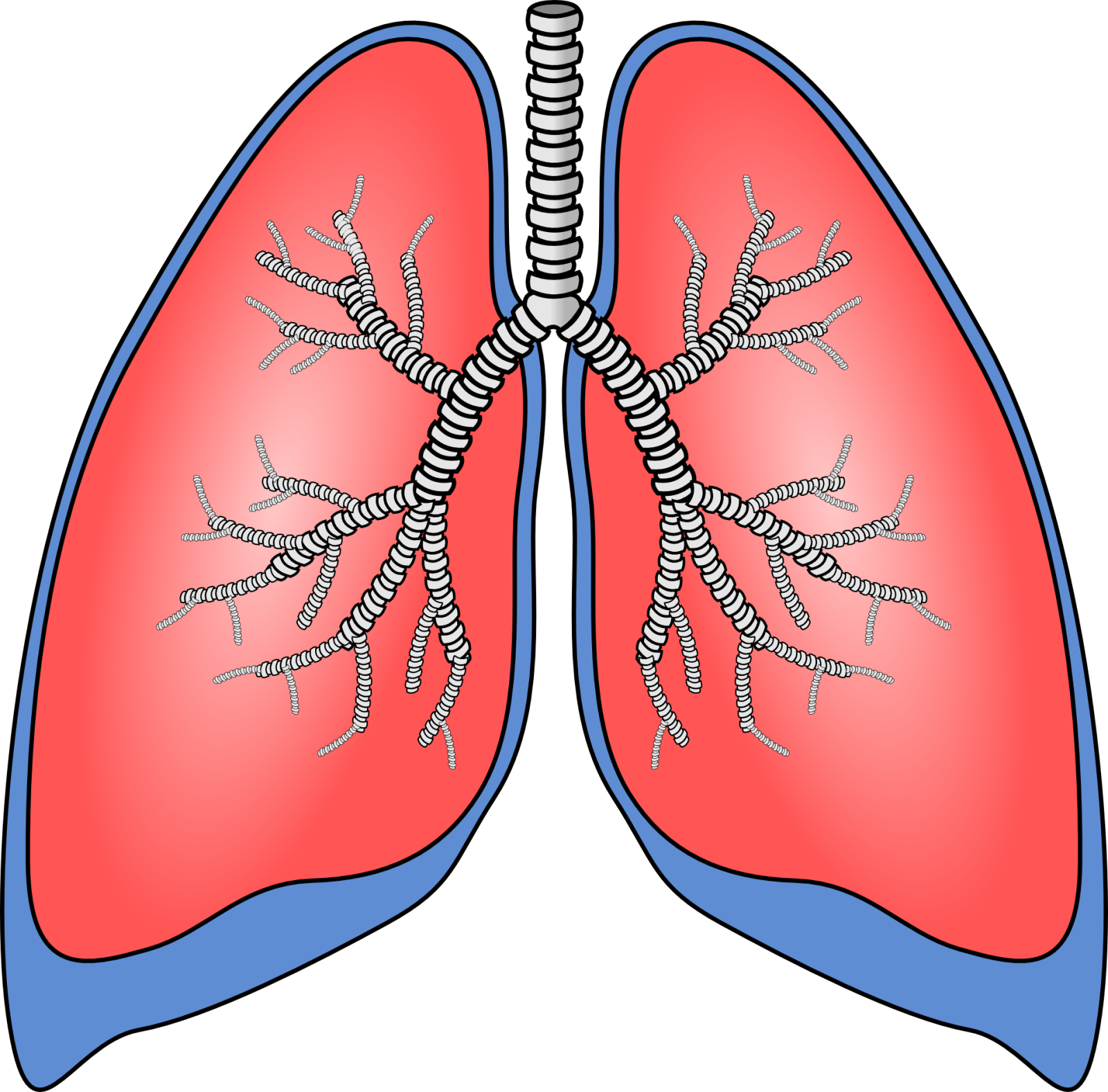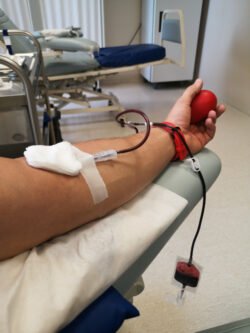Rare Tumors on the Rise: Thymoma and Thymic Carcinoma
This article provides an in-depth exploration into the rare tumors, thymoma and thymic carcinoma. We delve into their characteristics, symptoms, diagnosis methods, and prognosis. Additionally, we discuss current treatment options, the role of ongoing clinical trials, and offer guidance on coping strategies. The aim is to enhance understanding and facilitate improved patient care for these challenging conditions. This resource is invaluable for medical professionals, patients, and caregivers seeking comprehensive information on thymoma and thymic carcinoma.

Key Takeaways
- Thymoma and thymic carcinoma are rare tumors that originate in the cells of the thymus.
- Diagnostic tests for thymoma and thymic carcinoma often include CT scans, MRIs, or biopsies.
- Advancements in treatment options for thymoma and thymic carcinoma include surgical techniques, radiation therapy, and chemotherapy.
- Ongoing research and clinical trials are crucial for improving understanding, early detection, and developing more effective treatment strategies for these rare tumors.
Understanding Thymoma and Thymic Carcinoma
The thymoma and thymic carcinoma are rare types of tumors that originate in the cells of the thymus, a small organ located in the upper chest under the breastbone. These malignancies present unique challenges in diagnosis and treatment. Diagnostic tests for thymoma and thymic carcinoma often include CT scans, MRIs, or biopsies to accurately determine the scale of the disease. Progress has been made in the form of advancements in thymoma and thymic carcinoma treatment. These advancements include surgical techniques, radiation therapy, and chemotherapy, with recent developments focusing on targeted therapies and immunotherapies. Although the disease remains rare, these improvements have significantly increased the survival rate and quality of life for patients.
The Symptoms and Diagnosis of Thymoma
Identifying the symptoms and arriving at a diagnosis of thymoma involves a thorough medical examination and specific tests, and often presents a complex challenge due to the rarity and slow-growing nature of these tumors. Symptoms vary greatly, often mirroring those of less severe conditions. They can include chest pain, shortness of breath, and fatigue. Distinguishing thymoma from other chest tumors requires advanced imaging techniques and histological analysis. The presence of thymoma-related autoimmune disorders, such as myasthenia gravis, often aids in diagnosis. Managing thymoma related autoimmune disorders is a key aspect of treatment, reducing symptoms and improving patient's quality of life. A multidisciplinary approach is essential to comprehensively diagnose, manage, and treat this rare tumor.
The Symptoms and Diagnosis of Thymic Carcinoma
Several symptoms can indicate the presence of thymic carcinoma, and comprehensive diagnostic methods are crucial for accurate identification and treatment planning. Symptoms may include chest pain, shortness of breath, and cough. Upon suspicion, diagnosis involves imaging tests and biopsy. Understanding thymoma and thymic carcinoma, their growth and development, is vital for prognosis and selecting treatment options. These options may include surgery, radiation therapy, chemotherapy, or participation in clinical trials exploring new methods for treating this rare tumor. Coping strategies, such as counseling and support groups, can help patients manage the disease's emotional toll. Ultimately, the prognosis depends on various factors, including tumor type, stage, patient's overall health, and response to treatment.
The Prognosis for Patients With Thymoma
How does the prognosis for patients with thymoma vary, and what factors contribute to this variation? The prognosis for thymoma patients largely depends on the tumor stage at diagnosis, patient's overall health, and response to treatment. Generally, early-stage thymomas have a favorable prognosis with high rates of survival. However, advanced thymomas, especially those that have metastasized, present a more challenging prognosis. Notably, prognosis improvement has been observed in recent years due to advances in medical technology and emerging therapies. Innovative surgical techniques, radiation, and chemotherapy regimens have enhanced the survival rates. Furthermore, targeted therapies and immunotherapy, which are still in the experimental phase, show promising results. Yet, each case is unique, and the prognosis must be individualized.
The Prognosis for Patients With Thymic Carcinoma
Despite the aggressive nature of thymic carcinoma and the complexities associated with its treatment, the prognosis for patients hinges on a combination of factors including the stage at diagnosis, overall patient health, and the success of therapeutic interventions. Key prognosis factors such as tumor size and spread significantly influence survival rates. Patients with localized tumors have a better prognosis compared to those with advanced stages.
Emerging therapies, including targeted treatments and immunotherapies, are showing promise in improving patient outcomes. They offer a new avenue for treatment, particularly for patients whose cancer has proven resistant to conventional chemotherapy. While these advancements are encouraging, the rarity of thymic carcinoma presents challenges in conducting large-scale trials, thus the exploration and validation of these therapies continue.
The Growth and Development of Thymoma
In the realm of rare tumors, understanding the growth and development of thymoma is crucial for effective diagnosis and treatment strategies. Thymoma, originating from the thymus gland, typically exhibits slow development, often remaining within the gland. Understanding thymoma growth patterns can provide valuable insight into potential treatment options and predicting disease progression. Unlike thymoma, thymic carcinoma, another form of tumor in the thymus, tends to grow more rapidly and spread aggressively. The management of thymic carcinoma progression is more challenging due to its aggressive nature. Both require a comprehensive approach to treatment, which hinges on a thorough understanding of their growth and development characteristics. Ongoing research continues to explore these aspects, aiming to improve patient outcomes.
The Growth and Development of Thymic Carcinoma
Characterized by its rapid progression, thymic carcinoma often presents a significant challenge for medical professionals due to its propensity to metastasize to other parts of the body. This aggressive nature is further complicated by the tumor's ability to resist traditional cancer treatments. Risk factors such as age, exposure to certain chemicals, and a history of autoimmune diseases may increase the likelihood of developing thymic carcinoma. In recent years, the focus has shifted towards targeted therapies, which aim to attack specific weaknesses in cancer cells. These innovative treatments are showing promising results in the management of this disease. However, ongoing research is required to improve early detection and develop more effective treatment strategies.
Treatment Options for Thymoma
Several treatment modalities are available for patients diagnosed with Thymoma, each with its own set of advantages and drawbacks. The most common approach is surgical removal of the tumor, which can offer significant prognosis improvement. If the tumor is inoperable or has spread, radiation therapy or chemotherapy may be utilized.
With advancements in medical science, targeted therapies have emerged as a potent weapon against Thymoma. These therapies specifically aim at the molecular and genetic changes in the cells, thereby minimizing damage to the healthy tissues. Immunotherapy, a form of targeted therapy, has shown promising results in some cases.
Regardless of the chosen treatment, regular follow-up visits are essential to monitor the patient's progress and to manage any potential side effects of the treatment.
Treatment Options for Thymic Carcinoma
How can a patient diagnosed with Thymic Carcinoma be treated, and what are the different therapeutic strategies currently available to medical professionals? The treatment plan typically includes surgery, radiation therapy, and chemotherapy, depending on the stage and extent of the cancer. Clinical trials for thymic carcinoma present cutting-edge options, incorporating novel drugs or therapy combinations. Patients may consider participating in these trials for access to treatments not yet widely available. Importantly, follow-up care is crucial in managing the late effects of treatment for thymoma, which can include heart and lung problems and secondary cancers. Multidisciplinary care involving oncologists, surgeons, and other specialists is often necessary for optimal management of this rare cancer. Patient education and support services are also vital components of comprehensive care.
The Role of Clinical Trials in Thymoma Research
Clinical trials' pivotal role in thymoma research has opened new avenues for advanced treatments and deeper understanding of this rare cancer. These trials have been instrumental in unearthing the potential role of immunotherapy in thymoma. Immunotherapy, by leveraging the body's immune system, has shown promise in combating thymoma, offering a new therapeutic approach. Moreover, clinical trials have led to advancements in targeted therapies for thymic carcinoma. These therapies specifically target cancer cells, reducing damage to healthy cells and potentially improving patient outcomes. The ongoing research through clinical trials continues to unravel new strategies and treatments, providing hope for those affected by these rare tumors. The role of these trials is undeniable in shaping the future of thymoma and thymic carcinoma treatment.
The Role of Clinical Trials in Thymic Carcinoma Research
In the pursuit of groundbreaking treatments for thymic carcinoma, clinical trials have consistently played a critical role, paving the way for innovative research and therapeutic strategies. These trials are instrumental in shaping the future of targeted therapies in thymic carcinoma, wherein drugs or other substances interfere specifically with molecules involved in tumor growth and progression. Furthermore, the impact of immunotherapy in thymic carcinoma treatment is under active investigation in these clinical trials. This approach boosts or restores the body's natural defenses against cancer, providing a promising avenue for treatment. Clinical trials thus remain a cornerstone in advancing our understanding and management of thymic carcinoma, potentially leading to better patient outcomes.
Coping Strategies for Patients With Thymoma and Thymic Carcinoma
Facing a diagnosis of thymoma or thymic carcinoma can present significant emotional and psychological challenges, necessitating the development of effective coping strategies for patients and their families. Joining support groups can be invaluable in this process. These groups provide a safe space for patients to share experiences, exchange information, and draw strength from others facing similar challenges.
Alternative therapies, too, have shown promise in managing the stress and anxiety associated with such a diagnosis. Techniques such as mindfulness meditation, yoga, and acupuncture can help reduce symptoms of anxiety and improve overall well-being.
It is important to remember that every patient's journey is unique. Therefore, the coping strategies should be personalized, combining medical treatments with support groups and alternative therapies tailored to individual needs and preferences.
Frequently Asked Questions
What Are Some Lifestyle Changes That Could Potentially Lower the Risk of Developing Thymoma and Thymic Carcinoma?
While specific measures to prevent thymoma and thymic carcinoma are not established, maintaining a healthy lifestyle could potentially lower the risk. This includes a balanced, nutritious diet, termed 'Thymoma Prevention Diet', and a regular exercise regimen. A diet rich in fruits, vegetables, lean proteins and low in processed foods may boost immune health. Regular physical activity, or 'Thymic Carcinoma Exercise Regimen', could enhance overall health and immune function. Always consult a healthcare professional for personalized advice.
How Does Having Thymoma or Thymic Carcinoma Impact One’s Mental Health and What Resources Are Available for Support?
Thymoma and thymic carcinoma can lead to significant psychological impacts, including stress, anxiety, and depression. Emotional coping strategies are crucial for managing such mental health challenges. Resources for support include counseling services, support groups, and mental health professionals. Additionally, organizations such as the National Cancer Institute offer information and resources to help patients and their families navigate the emotional landscape of dealing with these rare tumors.
Are There Any Known Genetic Factors That Could Increase One’s Risk of Developing Thymoma or Thymic Carcinoma?
The role of genetic factors in the development of thymoma or thymic carcinoma is not fully understood. However, advancements in genetic testing have provided insights into potential hereditary risks. Some studies suggest certain genetic mutations may increase susceptibility. While these findings are not definitive, they contribute to developing prevention strategies. As our understanding of these rare tumors expands, these strategies can be tailored to individuals with a higher genetic risk.
What Are Some Potential Side Effects of the Treatments for Thymoma and Thymic Carcinoma, and How Can They Be Managed?
Treatment advancements have improved management of side effects for thymoma and thymic carcinoma. Side effects may include fatigue, nausea, and pain, which can be managed through palliative care measures. Medications, dietary changes, physical therapy and psychological support can help patients cope. It's important to have open communication with the healthcare team about side effects to ensure optimal management and quality of life during treatment.
Are There Any Support Groups or Communities for Individuals Diagnosed With Thymoma or Thymic Carcinoma?
Yes, there are several support groups and communities for individuals diagnosed with thymoma or thymic carcinoma. These platforms can assist with emotional coping and provide family support. They offer a space to share experiences, seek advice and gain encouragement. Organizations such as the American Cancer Society and the Thymic Cancer Foundation offer resources and connections to these support networks. It's important to remember that you are not alone in your journey.
Conclusion
In conclusion, thymomas and thymic carcinomas are rare tumors that necessitate comprehensive research for effective treatment strategies. The aggressive nature of thymic carcinomas, in particular, presents significant challenges. Clinical trials remain pivotal in advancing understanding and enhancing therapeutic protocols. Additionally, providing resources and support for affected individuals is crucial. The ongoing research and development of coping strategies promise potential improvements in prognosis and quality of life for patients afflicted with these rare tumors.

This post has been generated by AI and was not reviewed by editors. This is Not legal advice. Please consult with an attorney.




